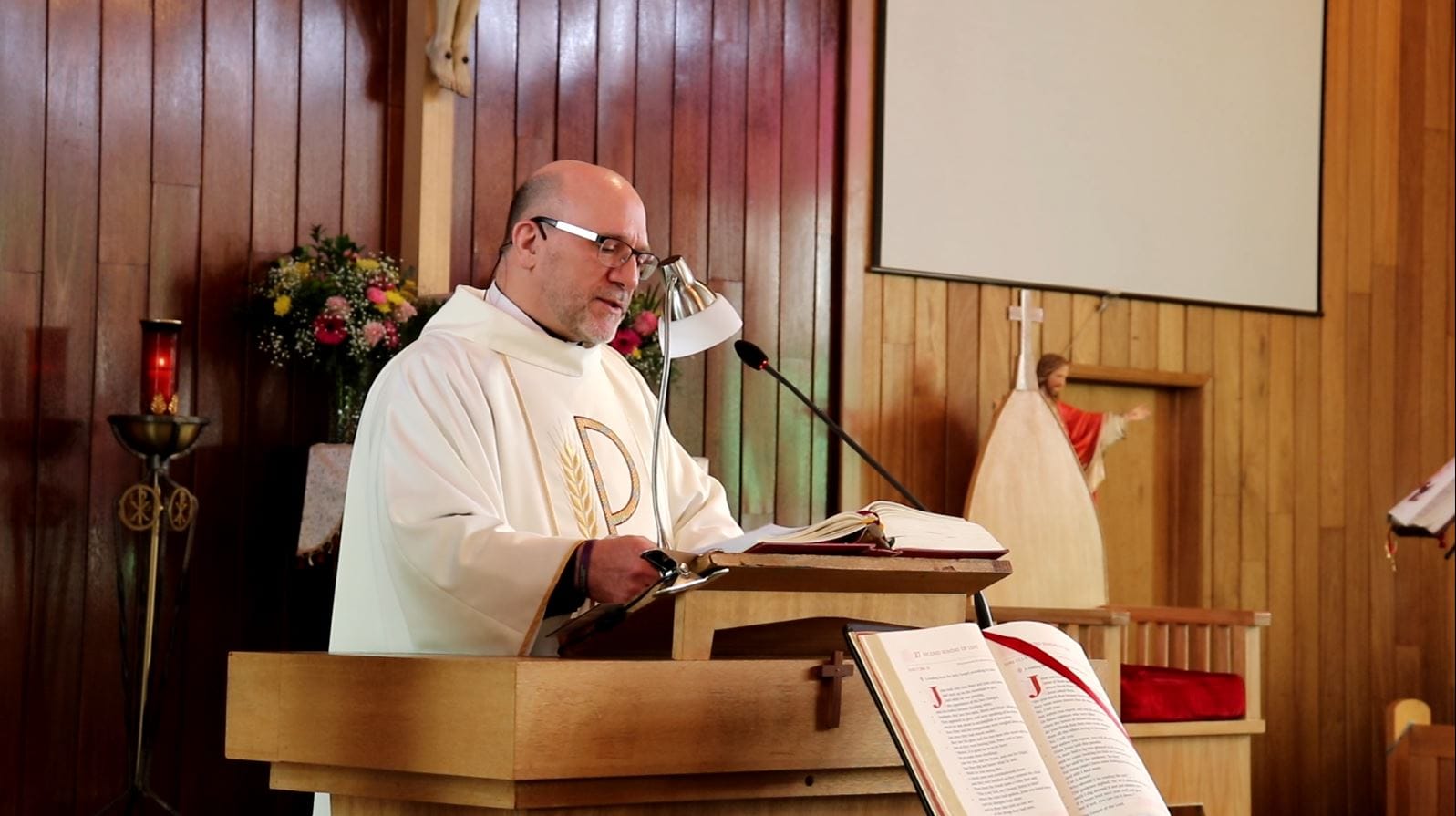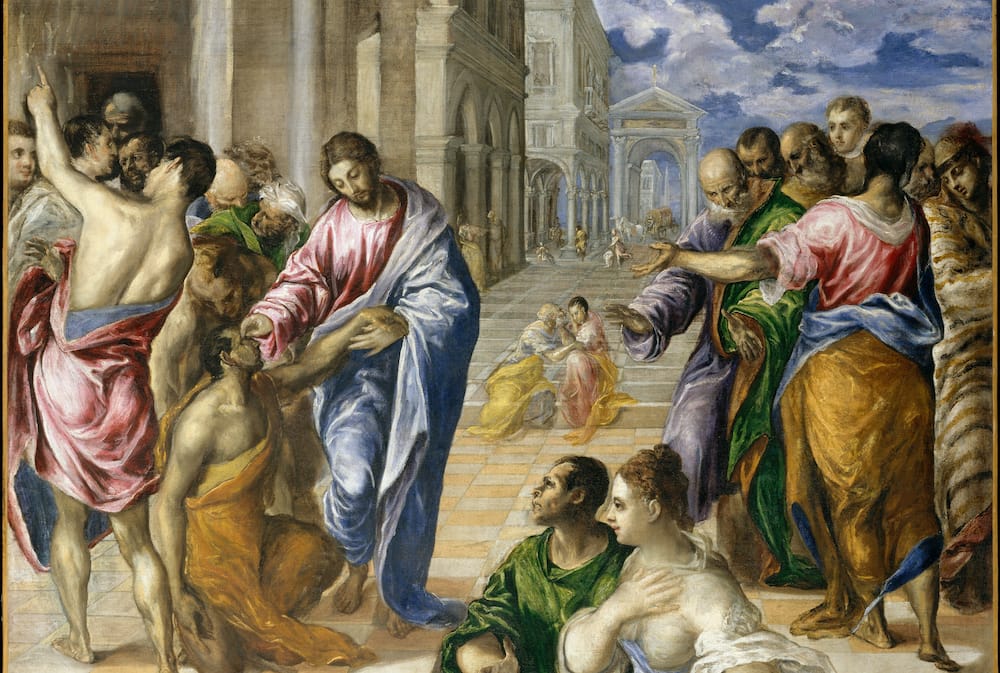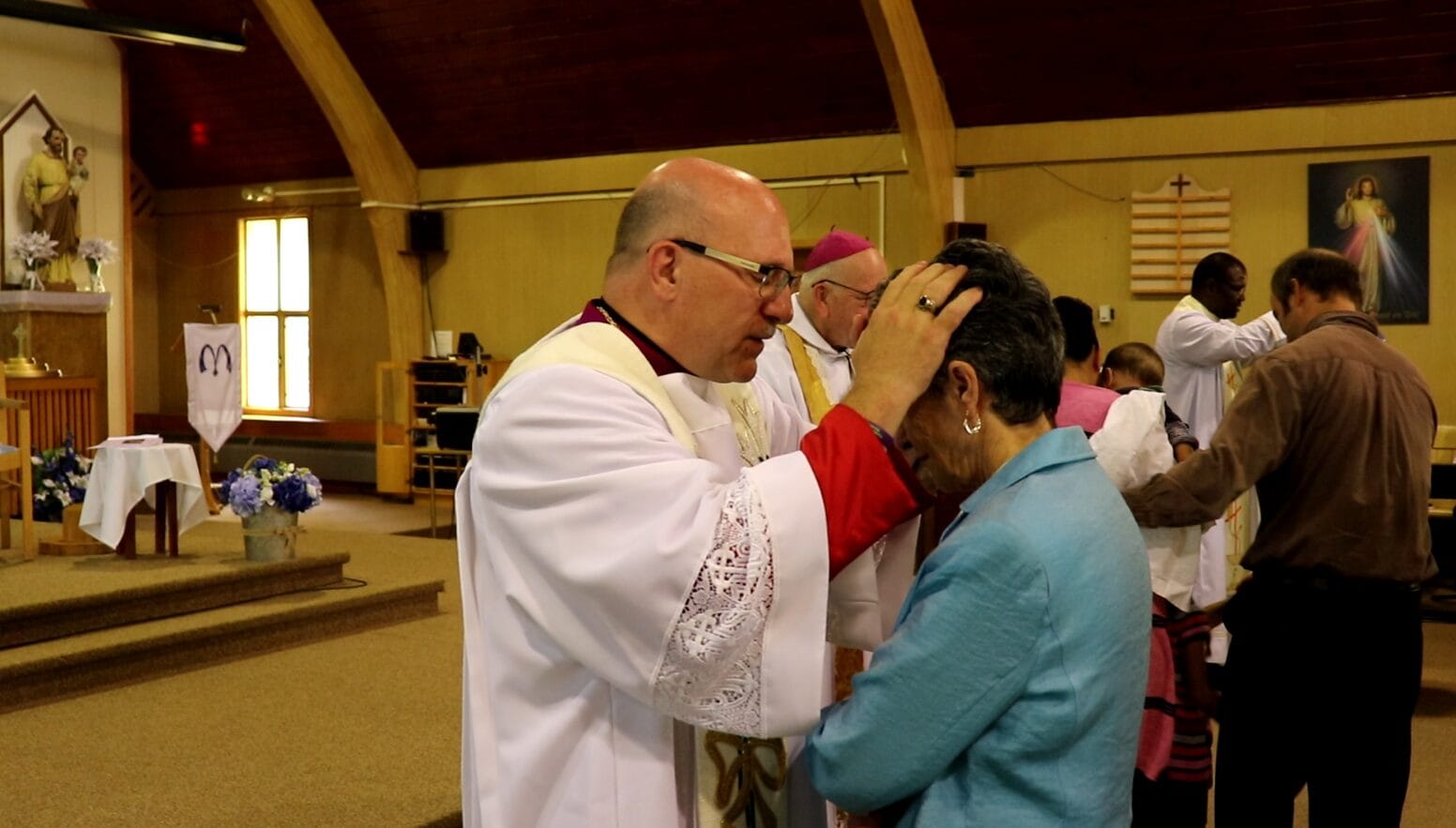
Joining our suffering to Christ
As euthanasia becomes a more pressing issue in our country, Msgr. Charles Lavoie reflects on the importance of our Faith in cherishing life to its natural end
In recent Sunday readings, the Gospels have been focusing on the healing power of Jesus, particularly of those possessed by evil spirits, but also of common ailments, like relieving the fever of the mother-in-law of St. Peter.
For the majority of us, the Church offers two sacraments meant for healing: the sacrament of reconciliation or confession, and the anointing of the sick, which for some time was called ‘Extreme Unction’, or ‘Last Rites’, and reserved for those on the brink of death.
Our understanding and teaching of this sacrament has developed, thankfully, to be a sacrament of healing: to bring strength, comfort and healing to a person who receives this anointing. I can assure you that in my 32 years as a priest, I have seen miraculous healings and recoveries from people who have received this sacrament. All this reflects the healing power of Jesus – His ability to make us well amidst our sufferings.
As you know, the world today is not well. Our country is not well. Canada is reported to be a strong leader in the promotion and legalization of ‘end of life’ practices or services. Today it is okay to overlook the oath that doctors and healthcare workers profess before being certified to work in the medical field. No longer are they responsible to adhere to this oath and do all in their capacity to save lives. Today, as a ‘treatment’, the proposition of “MAiD” – Medical Assistance in Dying – is at the top of the discussion with patients. Some prefer to call it ‘mercy killing’. Well, there is nothing merciful about it.
I am worried. I am worried because in the last year and a half, I have had practicing Catholics who are ill, suffering from a terminal illness, be it cancer or something else, asking me whether they can opt and ask for ‘medical assistance in dying’. The Church is against it, and I myself am not in favour of it.
What has happened to our faith, our trust and confidence in God and in Jesus? What dignity do we give to our existence and our belonging, not only to God, made in His image, but to our family and friends, those who are ready to accompany us on this difficult journey through illness? What is our understanding of suffering?

Few are those who do not suffer in this world. We will all experience suffering in some form. Who among us has not had a loved one and dear friend suffer before us? Should we encourage them to have their lives taken from them? Should we ‘ask for MAiD’, or should we accompany them in their suffering out of love and compassion?
Yes, it is hard to see a loved one suffer. The Virgin Mary watched her Son suffer, being nailed to a Cross, suffer the humiliation and ridicule, the taunts and sneers; this Man suffered greatly and He died on that cross. Was it for nothing? Jesus, out of all people, had the power to prevent his own suffering, and he did not interfere with God’s plan for him.
Jesus suffered and died on the Cross for us! Neither should we interfere with the plan of God in our lives. Life is not of our own self-giving; we do not give ourselves life. Rather, life is a gift from God. It is the will of God that we have life. Is there not grace and merit in suffering? I believe there is! Can we not offer up our suffering with the suffering of Christ on the Cross? Yes, we can! Will he help us through our suffering? Yes, he will. Can we put our trust and confidence in Jesus to help us? Absolutely!
We need only read the Gospels. What did Jesus do for the sick, the suffering, the lost, the sinner and even the dead? He came to them and gave them hope, healing, life and love. As we recently heard proclaimed in the Gospel of St. Mark, Jesus’s mission “began by proclaiming: ‘The time is fulfilled, and the kingdom of God has come near; repent, and believe in the good news.’” (Mk. 1:15) He comes to us with the same message today. We must see Jesus as the answer to all of our sufferings, whether we suffer physically, emotionally, mentally or even spirituality. Great saints, we are told, experienced what is called the ‘dark night of the soul’, when they felt abandoned by the Lord. But, by faith, they knew that not to be true, and they endured through their suffering. Jesus was still walking with them during the most difficult trials of their lives. This makes me think of the poem, ‘Footprints in the Sand’, that it is in the hard times of life that Jesus is carrying us.
There is probably a greater mental, emotional and spiritual illness in the world today, more than any physical ailment and illness. We need to pray for faith and strength that Jesus will carry us through all of our suffering.

Here in Canada, the federal government has recently decided to put a temporary pause on its proposed expansions to MAiD, which would allow people solely suffering with mental illness to end their life through euthanasia. But we should hardly breathe a sigh of relief. In a recent article by Alex Schadenberg of the Euthanasia Prevention Coalition (www.epcc.ca), statistics show that there was approximately 16,000 euthanasia deaths in Canada in 2023 and more than 60,000 deaths since legalization in 2016. Quebec alone reported 5,211 euthanasia deaths from April 2022 to March 2023, and 15% of those deaths were from persons not deemed terminally ill.
There are increasing euthanasia and assisted suicide deaths in our country, as well as the possibility that those who can access such “services” will increase in the future. This reflects that our culture has lost the sense that there is meaning in suffering, that in our suffering is a chance to draw our lives closer to Christ, to be blessed with God’s grace and to share in His suffering and so experience His healing power. We have lost the sense that our life is a gift from God, and it is not up to us to throw this gift away.
One day, I was asked to see a patient in the hospital suffering with cancer. The doctors had informed him that there was nothing that they could do but to medicate his pain and keep him as comfortable as possible. Aware of the legalization of MAiD, he wanted to know the Church’s position on this matter and whether it was something he might contemplate. This he asked with his family at his side. I explained to him that the Church sees MAiD as morally wrong and that, with faith in Christ who suffered and died on the Cross for love of us, and for him, he should find strength in uniting and offering his suffering as a gift to the Lord. I proceeded, at his request, to celebrate the sacrament of the anointing of the sick. Before I left, he thanked me and said, “I am already feeling much better!” He died in palliative care a few weeks later having put his faith and trust in the Lord.
We who experience suffering are not alone. Suffering is a fact of life, a part of every person’s life. Rather than asking, as the demon possessing the man in Mark 1:24 did, “What do you want of us Jesus of Nazareth? Have you come to destroy us?”, let us ask Jesus for his help, for his strength to carry us through whatever we must endure. Let us remember that Jesus did not come to destroy the world and us with it. No, instead, He came to reveal to us a Father’s love and to bring healing and mercy to the world, and, for the believer, the gift of eternal life.
Msgr. Charles Lavoie, PH
February 2024